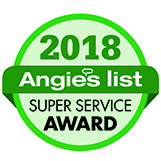Welcome to Premier HVAC Services How to Find Us
Yes. Our techs are trained to work on a wide variety of equipment and we will honor your warranty
Yes. Our techs respond to emergencies at all hours, in all weather. Our trucks are fully equipped, so our staffers can quickly fix your problem, whether you're in Long Island or New York City. Our fully equipped trucks are important because you don’t have to wait while a technician returns to the shop to get a part or a tool. We arrive ready to fix your problem!
There are many good brands on the market. The best brand is the one that efficiently heats and cools your home or business and doesn’t break your budget. We’ll gladly sit down with you and go over the pluses and minuses of each brand and give you all the information you want to make the decision that is best for you. The factors include square footage, how the system is used and numerous other details that will help you pick what you want.
Yes, we’re available every day. Equipment problems don’t take a holiday, and neither do we.
It depends on your home or business, the number of occupants, the usage, the square footage and numerous other factors, including your budget.
We can help you sort through the many options and give you all the details you want to make a choice that fits you and your spending plan. Among the questions:
● Do you want central heat and air?
● Should you get a furnace that is 80 percent or 96 percent efficient?
● Which is better: Single-stage, two-stage or modulating furnace?
● Are rebates available from manufacturers or utilities?
● How much ductwork is involved?
It can be complicated, but we will help you walk through the various steps. And because our techs can handle any heating or cooling system, we will tell you all the pros and cons.
It all depends. How do you use the house or business, its size, how many people live or work there, and many other factors? The most logical choices in New York City and Long Island are electric, oil, natural gas, heat pump and wood.
Also, do you have good insulation and ceiling fans to move the air about to maximize use?
We will gladly go over your options and help you get the information you need to decide what’s best for you.
All have advantages and disadvantages.
Electric is the leader when it comes to efficiency, followed by natural gas and oil. But you need to consider other factors, too. A natural gas system costs more to install than an electrical heat system, and oil requires storage on-site, which may not work in small buildings.
Your best bet is to ask us to provide more information on what’s best for your particular needs – home size, budget, length of time you intend to keep the property, and budget, among other considerations.
There are several advantages, especially if your ducts contain significant amounts of mold that could enter your home’s living area and affect the health of people and pets.
You also want to clean your ducts if they contain vermin like rodents or bugs or large amounts of dust and debris.
A professional duct cleaner, such as Premier Services, has the tools and expertise to thoroughly clean the ducts, including areas that are hard to reach.
Cleaner ducts could improve the efficiency of your heating and cooling system and provide relief to people who have asthma or other breathing problems.
In addition, if you have a fuel-burning furnace, stove or fireplace, the U.S. Environmental Protection Agency recommends it be inspected for proper functioning and serviced before each heating season to protect against carbon monoxide poisoning.
You need a system that fits your home’s size; there’s no one-size-fits-all.
You should consider the square footage, whether it’s multi-story, properly insulated and other factors.
One common mistake is to buy a system that’s too big. This leads to inefficiency and higher utility bills, proof that bigger isn’t always better. A too-small system won’t heat or cool properly.
Call us to show you how to calculate the best system for your property.
When it gets dirty, which will vary depending on the usage of your heating/cooling system, whether you smoke or have pets that shed, and other considerations.
Cheaper filters don’t last as long as more expensive, pleated filters. Different seasons will have different impacts. For example, an AC filter is much more likely to get dirty in July than in January.
One easy way is to check the filter each month when you receive your utility bill. If it’s smelly or it has collected large amounts of dust, change it. A filter is a relatively cheap way to keep your air clean and to avoid overtaxing your heating and cooling system.




